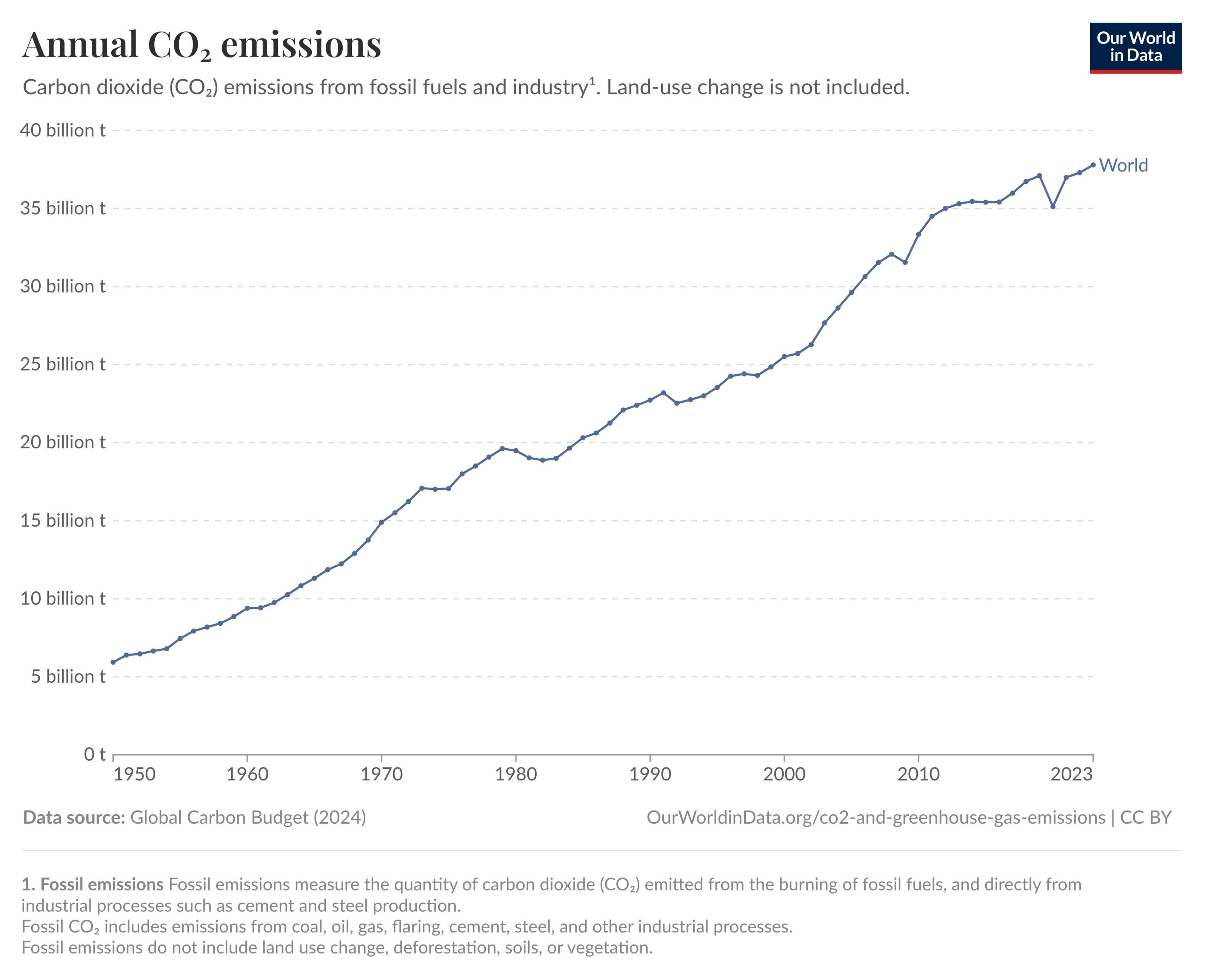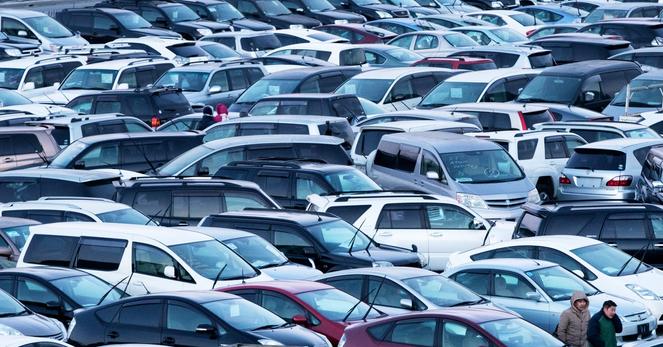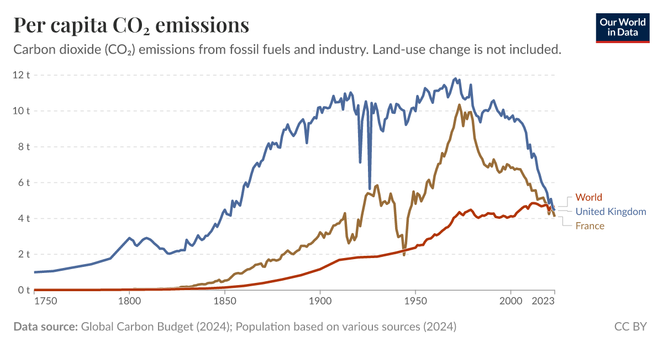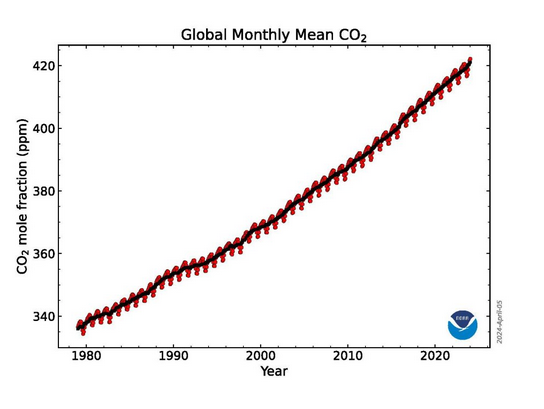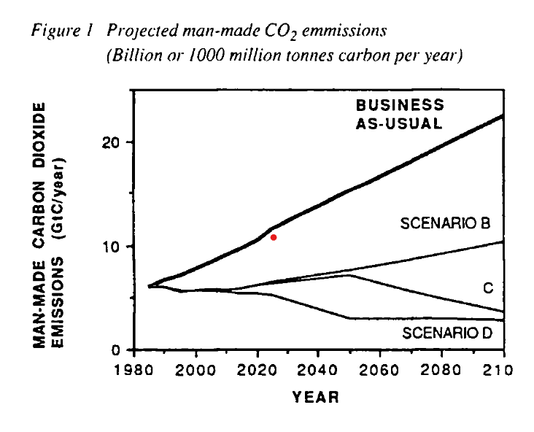@davidho While the anticipated maximum temperature may be lower, we have learned a lot about the impacts of a given temperature in the last 20 years.
2.7C now is nearly as scary as 4C was 20 years ago. The thresholds for the major positive feedbacks are lower. Climate chaos is already happening. And there are good reasons to believe that climate change has sped up significantly.
Of course there's been some progress. But there hasn't been *enough* progress, and in many areas we are actively backtracking.
Right wing politicians are perfectly capable of killing off even the inadequate market-driven solutions that are acceptable under capitalism.
And they are doing so. Trump is blocking offshore wind and ordering coal fired power to stay open.
And there are huge areas of policy where there is precisely zero chance of the market delivering in time. Heating/cooling, transport, large parts of industry, agriculture.
All of them require leadership and spending from government. But government is either in bed with the fossil fuel industry or terrified of their proxies in various forms of media. Or making up budgetary excuses that ultimately are based arbitrary ideology around taxation.
Even in the UK, after Labour promised not to approve any new fossil fuel licenses, the chancellor is pushing to approve the Rosebank (500MT of CO2 on its own), and Jackdaw oil fields.
Meanwhile while there is some capital for public transport, last year they cut funding for the bus fare cap, and they're now cutting funding for EV charging points. They are also politically buying in to the data center/AI bubble, which will also leave stranded assets and huge carbon emissions.
On the upside, the money for insulation and other measures to upgrade old leaky housing did survive.
And Germany, once a leader, still burns significant amounts of coal for power.
Bottom line?
Hope is not the same thing as hopium.
We have already missed 1.5C. We are probably going to miss 2C as well. We are heading for 2.7C at present on current policies. In spite of recent positive signs emissions have not yet peaked. Trump alone adds around 4 billion tonnes, and the UK will probably go the same way in 2029.
Business as usual will not fix the problem. "Hopium" is passively hoping for the best while cherry-picking good news and ignoring the bad.
Hope, on the other hand?
“Hope is not a lottery ticket you can sit on the sofa and clutch, feeling lucky. It is an axe you break down doors with in an emergency. Hope should shove you out the door, because it will take everything you have to steer the future away from endless war, from the annihilation of the earth's treasures and the grinding down of the poor and marginal... To hope is to give yourself to the future - and that commitment to the future is what makes the present inhabitable.”
Rebecca Solnit


